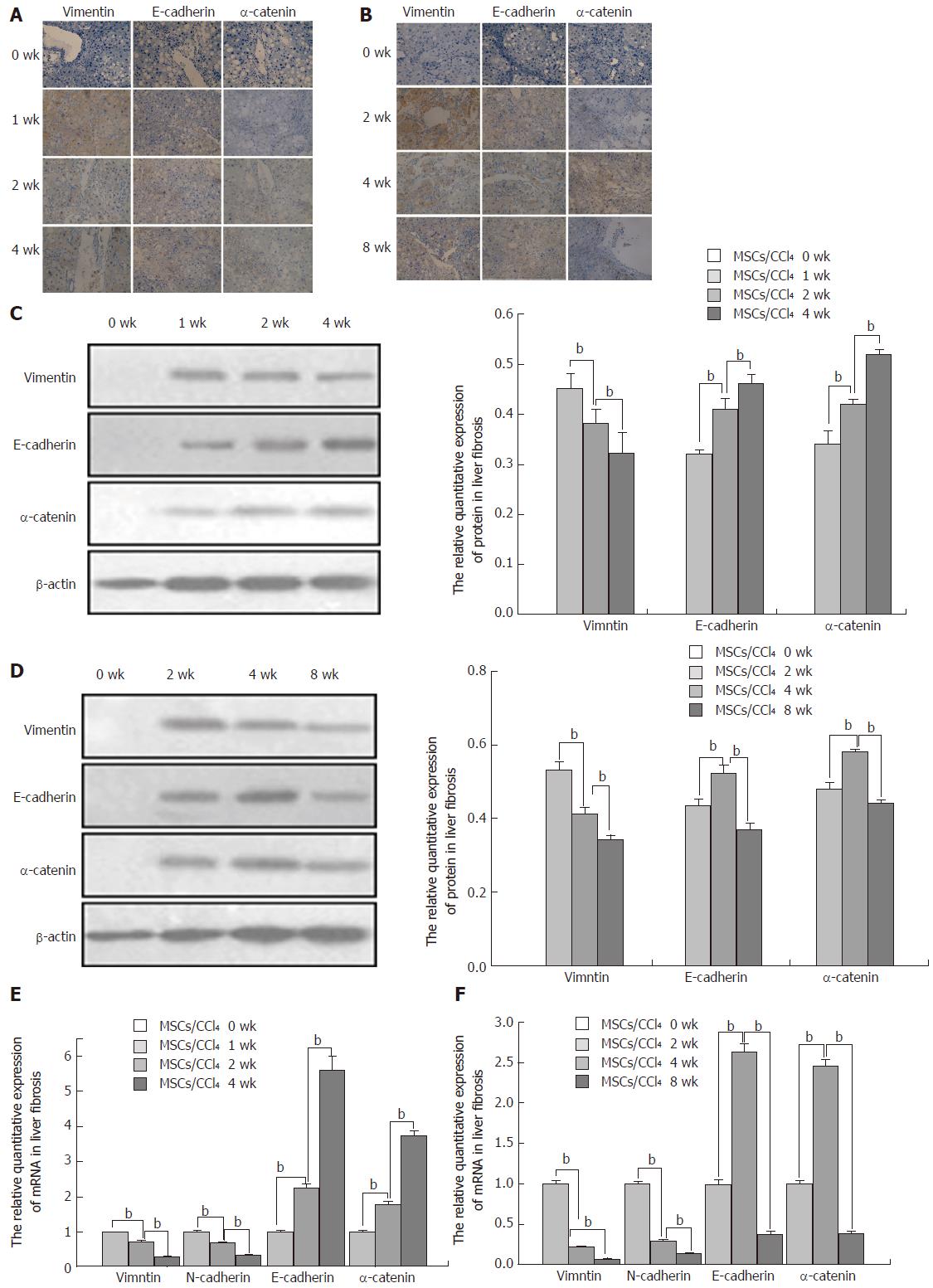Copyright
©The Author(s) 2017.
World J Gastroenterol. Dec 14, 2017; 23(46): 8152-8168
Published online Dec 14, 2017. doi: 10.3748/wjg.v23.i46.8152
Published online Dec 14, 2017. doi: 10.3748/wjg.v23.i46.8152
Figure 3 Expression of human vimentin, a mesenchymal marker, and human E-cadherin and α-catenin, epithelial markers, in rat liver tissues.
A, C, and E: Immunohistochemical, Western blot, and real-time PCR analysis of human vimentin, E-cadherin and α-catenin in rat fibrotic livers at 0, 1, 2, and 4 wk after human umbilical cord-derived mesenchymal stem cell (hUC-MSC) transplantation, respectively; B, D, and F: Immunohistochemical, Western blot, and real-time PCR analysis of human vimentin, E-cadherin and α-catenin in rat cirrhotic livers at 0, 2, 4, and 8 wk after hUC-MSC transplantation, respectively, bP < 0.01.
- Citation: Zhang GZ, Sun HC, Zheng LB, Guo JB, Zhang XL. In vivo hepatic differentiation potential of human umbilical cord-derived mesenchymal stem cells: Therapeutic effect on liver fibrosis/cirrhosis. World J Gastroenterol 2017; 23(46): 8152-8168
- URL: https://www.wjgnet.com/1007-9327/full/v23/i46/8152.htm
- DOI: https://dx.doi.org/10.3748/wjg.v23.i46.8152









